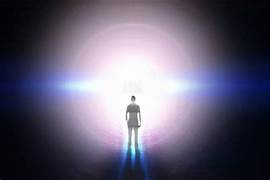“The question of whether paranormal phenomena actually exist probably divides educated members of modern Western civilization as sharply as any other single issue. If it is true that the human brain can receive messages and control things in ways that cannot be explained normally, then this undermines the belief of most scientists and runs contrary to the belief of most of us who actually investigate the brain.”
It was with these remarks that Horace Barlow, a physiologist from Cambridge University, opened a unique interdisciplinary conference in Cambridge last month. The meeting brought together some 50 scientists from a range of disciplines, including psychology, psychiatry and physics, to discuss “rational perspectives on the paranormal”.
Many of the delegates at the conference, including Barlow, are highly sceptical of the existence of paranormal phenomena. Claims of ghosts, alien abductions and spoon-bending are often based on dubious evidence, while attempts by parapsychologists to reproduce paranormal phenomena under controlled laboratory conditions are fraught with difficulty. Positive results are not unusual, but are rarely repeatable. Moreover, many seemingly weird phenomena have subsequently been explained by conventional science.
Most readers of Physics World will probably dismiss paranormal phenomena as either utter nonsense or not worthy of serious study, but over the years the subject has attracted the interest of a number of eminent physicists. Lord Rayleigh, J J Thomson and Oliver Lodge, for example, were all early members of the Society for Psychical Research, which was founded in 1882 by fellows of Trinity College to study “those faculties of Man, real or supposed, which appear to be inexplicable on any generally recognized hypothesis”.
According to Bernard Carr, who organized last month’s meeting and is a cosmologist at the University of London, paranormal phenomena fall into three main categories. First there are “pseudo-psychic phenomena”, which may in fact have a very simple physical explanation. Some kinds of poltergeist phenomena, for example, may fall into this category. “These phenomena are not really psychic, but are often misinterpreted as such,” Carr explains.


Leave a Reply